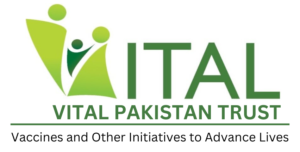Vital Digital Platform
The ‘Vital Digital Platform’ is an electronic health record system that captures longitudinal, multi-dimensional data points across the Maternal, Neonatal, and Child Health (MNCH ) journey. The application has 14 integrated modules that enable front-line workers to deliver quality MNCH services in low-resource settings across Karachi.
16
Modules
70+
Locations across karachi
Hybrid
Online and Offline
400+
Users
925K+
Women and Children
2000+
Data Points
Vital Digital Platform Modules
Vital Registry (VR)
The VR team periodically surveils peri-urban neighborhoods and registers married women and under-five children into the system. The VR community health workers use the module to capture and update relevant household, demographic, obstetric, and child information.

Verbal Autopsy Social Autopsy (VASA)
In the unfortunate event a registered woman or child passes away, the VASA coordinator visits the household to confirm the date and time of death and performs a verbal autopsy. The woman or child is then marked deceased in the system, their profile becoming inactive.
Triage
A registered woman or child can visit one of the Vital’s clinics to avail free healthcare services. The Triage worker captures their vitals and anthropometric data and puts them in queue for ANC consultation, Venofer administration, Physician check-up or Vaccination accordingly.
Antenatal Care (ANC)
When the ANC midwife assesses a pregnant woman, she logs her obstetric and health history, danger signs, and detailed pregnancy assessment into the system. The recorded information is available to the midwife throughout the woman’s current pregnancy to provide quality antenatal care services.
Sonologist
The ANC midwife requests for an ultrasound. The sonologist digitally captures fetal biometry, fetal presentation and other metrics. Once submitted, the ANC midwife can view the ultrasound results for informed decision-making and service delivery.
Lab
The ANC midwife also requests for sample collection. The phlebotomist forwards the collected samples to higher-care facilities for testing and updates it in the system.
Care Coordinator
During any ANC visit, if the woman experiences pregnancy complications, needs advice on delivery planning, or is in labor, the ANC midwife creates a request for the care coordinator. The care coordinator then arranges referrals to referral facilities and updates the outcome of these requests.
Intrapartum (IP)
After the woman delivers, she is visited by the IP midwife. The IP midwife captures key details about labor and delivery characteristics.
Postnatal Care (PNC)
To ensure the woman’s successful postpartum recovery, the PNC midwife tracks her health status up to one-year post-delivery. The PNC midwife screens for any postnatal complications in the mother and suggests management accordingly.
Family Planning (FP)
The FP team regularly counsels the woman about the benefits of family planning. If she consents, they assess her health and administer a FP method accordingly.
Newborn (NB)
After delivery, the newborn team approaches the woman to obtain her baby’s information regarding anthropometry, vaccination status, and danger signs. This surveillance lasts up to one year post-birth.
Social Mobilization
To ensure the woman follows the routine vaccination schedule for her baby, social mobilizers visit her house. If the woman misses a vaccination date, they follow-up with her, recording her reasons for refusing vaccines. They also digitally update child vaccination records during their visits.
Vaccination
The vaccinator administers routine vaccines to under-2 children and updates their digital vaccination records accordingly. These efforts are conducted both on-site and through outreach.
Physician
If the baby ever requires general health services, the mother can visit a physician at the clinic. The physician assesses the child’s health including nutritional status, previous diagnoses, medication and treatment history, and current health issues.

